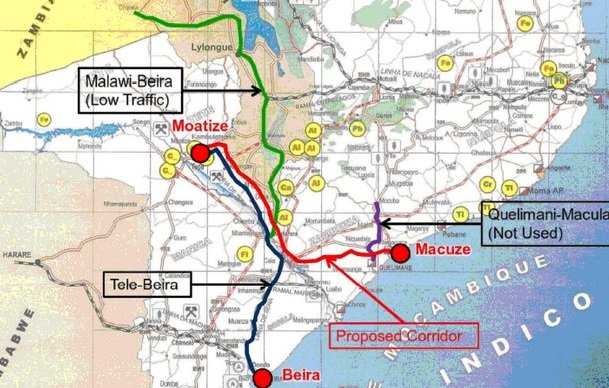Seventy-three
families living in the Supinho region of Quelimane district in Zambézia
province are in the process of being transferred to make way for the
construction of the Macuse Deep Water Port, which will be used to export coal
from Tete.In order to safeguard against potential future conflicts involving
stakeholders, the resettlement process of these families is being preceded by
four public consultation sessions.
 Mamede
Latif, executive director of Thai Mozambique Logistic (TMZ), told Notícias that
the first two public consultation sessions involving the local community, the
company and the provincial government of Zambézia were held last week in the
Supinho region, where the infrastructure is to be built.
Mamede
Latif, executive director of Thai Mozambique Logistic (TMZ), told Notícias that
the first two public consultation sessions involving the local community, the
company and the provincial government of Zambézia were held last week in the
Supinho region, where the infrastructure is to be built. Latif
did not specify the overall amount to be spent on the resettlement operation,
but said that a detailed assessment would be made under the law to determine
the actual amounts to be paid to each affected family, so as to safeguard their
continuity of life in the resettlement sites.Apart from the 73 families, 10
hectares of fields belonging to the Supinho communities will be affected by the
project. Latif said that the survey of home improvements in the places where
the project will be implemented starts on May 20.
Latif
did not specify the overall amount to be spent on the resettlement operation,
but said that a detailed assessment would be made under the law to determine
the actual amounts to be paid to each affected family, so as to safeguard their
continuity of life in the resettlement sites.Apart from the 73 families, 10
hectares of fields belonging to the Supinho communities will be affected by the
project. Latif said that the survey of home improvements in the places where
the project will be implemented starts on May 20.
A
concession agreement for the implementation of the project has been signed
between the Ministry of Transport and Communications and the Thai Mozambique
Logistic company, and the laying of the first stone took place last year.In
addition to the Port of Macuse, the project includes the construction of a
600-kilometre railway line linking the port to the coal-mining area of Chitima
in Tete province. The new railway line will carry 25 million tonnes per year
from 2022 to 2028, and, in the second phase, 40 million tonnes per year from
2029 on.The construction of the port will take place in several stages,
including the preparation and levelling of the construction site, the
establishment of offices and temporary road works, building the berth itself,
laying the foundations for and installing goods handling equipment and dredging
the access channel.Once completed, the port will stimulate national and foreign
entrepreneurs to explore the Zambezia Development Corridor (CODIZA), linking
Quelimane-Nicoadala-Namacurra-Mocuba-Milange and hinterland countries. The
Mocuba-Milange road, more than 200 kilometres long, is in the final phase of
being asphalted, raising expectations of development in Zambézia.
0 comentários:
Post a Comment